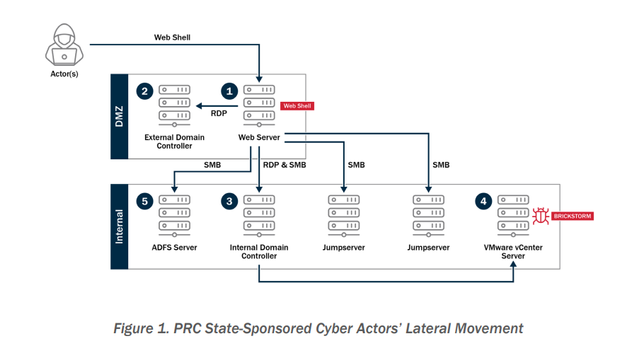2026-02-04 03:22:18
her: "Guess what I got to do today?"
me:
her: "I got to do the funnest thing imaginable!"
me: "oh?"
her: "I got to visit THE EBOLA WARD"
me: "oh boy! did you get any ebola?"
her [w/ mock sadness]: "no, they were all out."
her: "but I at least got to do the tour!"
2026-01-04 21:09:37
Raiders get good news about draft position before kickoff https://www.reviewjournal.com/sports/raiders/raiders-get-good-news-about-draft-position-before-kickoff-3603583/
2025-12-05 14:50:56
Before you head out for the weekend, don't miss today's Metcurity for the crucial cybersecurity developments you should know, including
--US, Canada warn of Chinese-linked Brickstorm malware that gains long-term access,
--Intellexa had access to personal data of Predator spyware targets,
--Int'l partners release AI security guide for OT orgs,
--Phreeli cellco doesn't ask for identifying info,
--Taiwan suspends Rednote over fraud cases,
--Alb…
2025-12-02 21:48:53
> try to test my software
> it uses codeberg.org for a test checkout
> /info/refs?service=git-upload-pack": dial tcp 217.197.84.140:443: i/o timeout
> open codeberg status page
> it times out
What am i supposed to do now. Touch grass?
2026-01-03 20:47:57
I have been using Nebo and Paper. Nebo has the best handwriting input I’ve ever seen, got bought and it seems like I can get my data out of it so I’m doing that now. Paper got bought by Evernote and I can’t even export my existing pages. I struggle with RSI but can still use a pen most of the time so these apps are a literal game changer - or rather, they were.
2026-02-04 14:43:02
So I busted out an old laptop and installed headless ubuntu minimal (I like to start small) so that I can start setting up some autonomous agents. My first step was to install Claude Code so that it could setup everything else for me, but after a few hours at it, both Claude and I admit that Claude Code is broken on a headless install. We tried a bunch a different way to get it to take a damn key, but the installer insists on an OAUTH auth that requires a browser.
I have a dislike fo…
2026-01-05 08:24:47
Inside-Out Connections. A Wellness Podcast.
A wellness podcast hosted by Tracey-Anne - a wellness coach passionate about the link between your skin, gut, emotional health, and your deeper sense of self...
Great Australian Pods Podcast Directory: https://www.greataustralianpods.com/inside
2026-01-04 20:05:21
It's Mage session time again:
The Chorister tries to build a Faraday cage out of nothing to help the Virtual Adept find out if two phones owned by Sisters of Hippolyta have been influenced by a techno mage.
He fails and is hit by a paradox flaw.
Since the Chorister was using a prayer about Mana, it starts raining Tamale.
When the Chorister want's to try a second time, a Sisters of Hippolyta offers to help:
SoH: »I'm aiming to get Nachos and Salsa w…
2026-01-05 05:52:40
For fans of #Steam games where you can build -really- broken mechanics like Balatro or Slay the Spire (#deckbuilders, #roguelikes, etc. - "Make the numbers go UP!"), LOOTPLOT has been *extremely* satisfying for me
It's like: "what if Incredible Machine, but Ballionaire" - you randomly get access to a bunch of items that each have their own mechanics and trigger/play off each other, which you build out on a grid - but the grid itself can be manipulated by the items. Some of the interactions are absolutely wild.
Plays a little rough on CrossOver - I think the dynamic scaling plays havoc with texture calculation - but is still enjoyable all the same. (It's written in LÖVE - I really hope the author releases a macOS build!)
The sale price of $3.49 is crazy good for the enjoyment value I've gotten out of it
https://store.steampowered.com/app/3057190/LOOTPLOT/
2025-12-03 20:26:30
Cowboys Get Double Dose of Bad Injury News Before Facing Lions https://heavy.com/sports/nfl/dallas-cowboys/tyler-guyton-trevon-diggs-out-lions/?adt_ei=[email]


